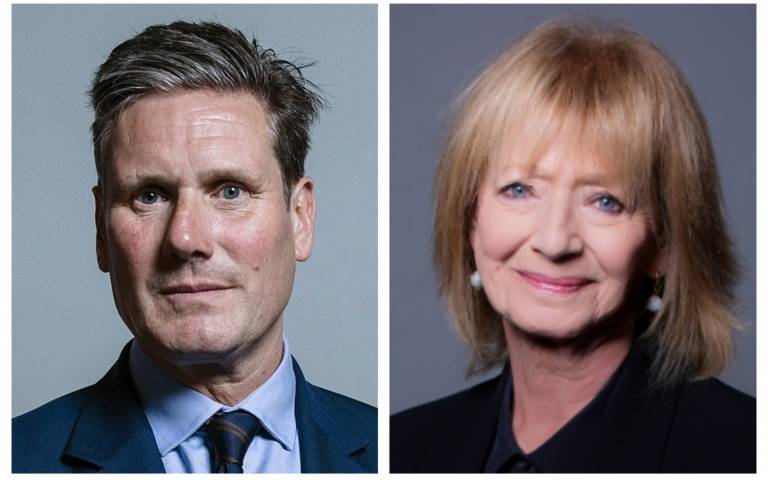Sir Keir Starmer joins UCL podcast on health and law
16 March 2021
Sir Keir Starmer, the Leader of the Labour Party, talked about the links between health and law with Professor Dame Hazel Genn (UCL Laws) on UCL Health of the Public’s “Public Health Disrupted” podcast.

In the podcast, entitled “How is law good for your health?” and hosted by Dr Xand van Tulleken (doctor, writer and TV presenter) and Dr Rochelle Burgess (UCL Global Health), Sir Keir and Dame Hazel discussed how health affected crime, and, conversely, how the law shaped health in its broadest sense, by enabling the conditions that allowed it to flourish, such as decent housing.
Dame Hazel recounted an experience from the UCL Centre for Access to Justice, a free legal services clinic she founded. In 2016 the UCL centre set up a partnership with a GP practice in Stratford to provide legal advice and support to low income and vulnerable patients in the practice. A mother whose baby had breathing problems and skin infections kept returning to the GP, she explained, until the GP, hearing about the damp and infested conditions she was living in, redirected her to the legal clinic team within the practice. They asked the local authority to review her housing, leading her to be rehoused.
“Once you've got the law on the books, that isn't the end of the story,” Dame Hazel said. “You may have a law that says you should be living in decent housing, but the question is, is the implementation [there] and does the individual know what they have to do.”
Sir Keir and Dame Hazel agreed that issues such as health inequalities and crime would only be properly addressed through collaboration between government departments spanning health, law, and education, and that government often did not adopt this “cross-cutting” approach very well.
The Labour leader argued that crime and health, especially mental health, were closely related, and said he did not believe we would “ever properly reduce crime if we don't tackle the health and mental health issues.”
Drawing on his experience as a constituency MP, he described a piece of work looking at the causes of fatal knife crime incidents, which found that incidents were often preceded by a trauma in the lives of both victim and perpetrator. This raised the question, he said, of whether school staff were trained to support children with trauma and could spot “when a child appears to be traumatised”.
There was also a “health pathway into crime”, Sir Keir said, with teenagers being treated in hospital for minor issues likely to be victims of more serious crime later on. He cited Redthread, a charity whose youth violence intervention programme involves embedding youth workers in A&E departments.
Health-related issues such as housing, Sir Keir said, also had an impact on crime. He said 50% of the cases at the walk-in surgery he used to hold as an MP were to do with housing. Overcrowded housing, he explained, could quickly become an education issue – “because [children] have got nowhere at home to do meaningful work” – and then potentially a criminal justice, with teenage boys, “fed up with being cooped up in a tiny flat”, increasingly accumulating in groups outside.
Separately, Sir Keir argued that inequalities, including health inequalities, had been “brutally exposed” by the pandemic, and that tackling them should be a central political question in coming months. He said that, as the UK emerged from the pandemic, there was a “fork in the road politically” and that, rather than aiming to return to the status quo as it was pre-pandemic, the Labour Party should “summon the spirit of the Second World War Labour government” and aspire to building something “different and better”, with improving health and inequalities at the centre of that.
The podcast is the fourth episode in UCL Health of the Public’s new podcast series, “Public Health Disrupted”. UCL Health of the Public is a new virtual School bringing multiple disciplines together to improve health for all.
Links
- Link to podcast episode
- Public Health Disrupted podcast
- UCL Health of the Public
- Professor Dame Hazel Genn’s academic profile
- UCL Centre for Access to Justice
- UCL Laws
- Dr Rochelle Burgess’s academic profile
- UCL Global Health
- UCL Population Health
- Sir Keir Starmer
Image
Sir Keir Starmer (credit: Chris McAndrew) and Professor Dame Hazel Genn (credit: Robert Chadwick).
Media contact
Mark Greaves
T: +44 (0)7990 675947
E: m.greaves [at] ucl.ac.uk
 Close
Close

